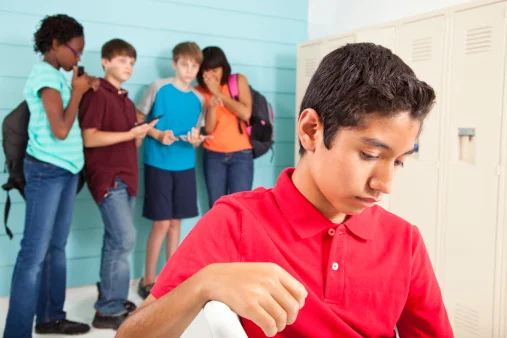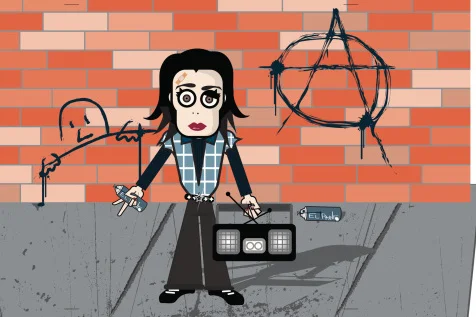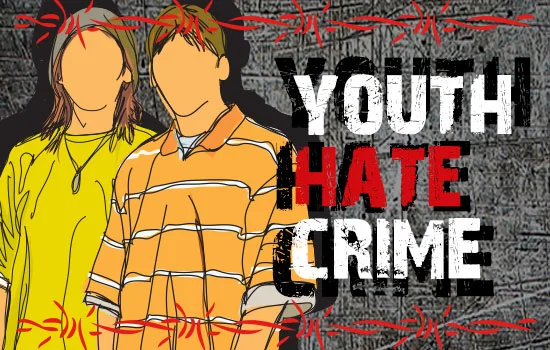+1 845 259 2974 (11 a.m to 7 p.m CST)
Why Do Teen Become Criminals? Guide and Solutions

Teen criminal behavior is an escalating concern that captures the attention of parents, educators, and policymakers alike. This troubling trend reflects a complex interplay of various factors that influence young individuals to engage in unlawful activities. Economic hardships, family dynamics, social influences, and mental health issues all play critical roles in shaping a teen's propensity towards criminal actions. The consequences of such behaviors are profound, affecting not only the teens themselves but also their families and communities at large.
In addressing this multifaceted issue, it's essential to explore comprehensive solutions that encompass education, community support, and effective parental monitoring. Let’s delve into the root causes of teen criminal behavior and discuss viable solutions, including the strategic use of monitoring apps. By understanding and tackling these underlying factors, we can guide our youth towards a more positive and lawful path.
Understanding the Cause
Understanding the root causes of teen criminal behavior requires a deep dive into the socioeconomic, familial, and psychological factors that influence young individuals. Here’s a closer look at these critical dimensions:
Economic Factors
Poverty and lack of resources are significant drivers of criminal behavior among teens. Economic hardship can lead to feelings of deprivation and exclusion, pushing teens towards illicit activities as a means of gaining financial stability or escaping their circumstances. The absence of essential resources like quality education, nutritious food, and secure living conditions also contributes to this dilemma, making criminal paths seem like viable alternatives for survival and success.
Family Influence
The family environment plays a pivotal role in shaping a teen's behavior and moral compass. Strong parental guidance and a stable family structure can act as buffers against criminal tendencies. Conversely, familial dysfunction, such as parental neglect, abuse, or exposure to criminal activities, can predispose teens to similar behaviors. Positive family dynamics and consistent discipline help instill values that deter involvement in crime.
Social and Peer Pressure
Peers significantly impact a teen’s life choices, especially during adolescence, a period marked by the quest for identity and belonging. The pressure to conform to peer group norms can lead teens to engage in activities they might otherwise avoid, including criminal acts. This influence is particularly strong if the peer group views criminal behavior as acceptable or desirable.
Mental Health Issues
Untreated mental health issues can also contribute to criminal behavior in teens. Disorders such as depression, anxiety, and conduct disorders can impair judgment and increase impulsivity, making teens more prone to engage in risky and illegal activities. The lack of mental health resources and stigma associated with seeking help often leave these issues unaddressed, further exacerbating the problem.
Addressing these root causes through targeted interventions and support systems is crucial for preventing teen criminal behavior and guiding young individuals towards a healthier, law-abiding life.
Impact of Teen Crime
The impact of teen crime extends far beyond the immediate legal consequences, affecting the young individuals involved, their families, schools, and the broader community. Understanding these effects can underscore the importance of addressing juvenile delinquency proactively.
Short-term and Long-term Consequences for Teens:
- Legal Repercussions: Initially, teens may face arrest, detention, or juvenile court proceedings. These experiences can be traumatic and stigmatizing.
- Educational Setbacks: Criminal behavior often leads to suspension or expulsion from school, disrupting education and limiting future opportunities.
- Long-term Career Impact: A criminal record can hinder job prospects, creating long-lasting economic disadvantages and perpetuating a cycle of poverty.
Effects on Families, Schools, and Communities:
- Familial Strain: Parents and siblings often endure stress and shame associated with a teen’s criminal activities, which can strain or break familial bonds.
- School Environment: The presence of crime within schools can create a climate of fear and distrust among students and staff, detracting from the educational mission.
- Community Degradation: Teen crime can contribute to a sense of insecurity and decline in community cohesion, affecting local businesses and property values.
Addressing these consequences requires a collaborative effort from families, schools, and community organizations to create supportive environments that deter crime and promote positive youth development.
Preventative Measures
Education and Awareness:
- School-Based Programs: Incorporating crime prevention education into school curriculums can inform teens about the legal and personal consequences of criminal behavior. Educating students on the ramifications helps to deter them from engaging in such activities.
- Awareness Campaigns: Schools and communities can collaborate on campaigns that emphasize the long-term impact of criminal records, promoting a deeper understanding and discouraging involvement in crime.
Community Programs:
- Engagement Activities: Community centers and local organizations can offer programs that provide healthy, constructive activities for teens. These might include sports, arts, and volunteer opportunities that engage their interests and talents in positive ways.
- Support Networks: Establishing mentorship programs where older, positive role models guide teens can help prevent youth from turning to crime. These relationships build confidence and offer support outside of typical family and school environments.
Role of Parental Monitoring and Guidance:
- Early Detection: Parents play a crucial role in noticing early signs of distress or deviant behavior. Recognizing these signs enables early intervention before issues escalate into criminal activity.
- Open Communication: Maintaining a dialogue where teens feel safe to discuss their challenges and pressures is vital. Parents should foster an environment of trust and understanding, allowing teens to express concerns without fear of harsh judgment or immediate repercussions.
These preventative measures, combining education, community support, and parental guidance, create a multifaceted defense against teen crime, addressing potential issues from multiple angles to reduce the likelihood of criminal behavior developing.
Using Monitoring Apps Effectively
Monitoring apps can be valuable tools for parents to ensure the safety and well-being of their teens. These apps allow parents to stay informed about their children's locations, activities, and communications, which can be crucial for preventing dangerous situations or criminal behavior.
Features:
- Location Tracking: Allows parents to know where their teen is at any time, which can be especially reassuring in emergency situations.
- Communication Monitoring: These features enable parents to view texts, emails, and sometimes even social media activity. This helps in understanding who teens are interacting with and what content they are exposed to.
- Usage Controls: Some apps provide the ability to restrict phone use during certain times, like during school hours or late at night.
Balancing Trust with Privacy:
- The use of monitoring apps must be handled with sensitivity to maintain trust. It's important for parents to communicate their reasons for using these tools and ensure that teens feel respected rather than spied on.
- Ethical considerations include discussing the use of these apps with teens and setting boundaries that protect their privacy while ensuring their safety.
Rehabilitation and Support for Troubled Teens
Options for Rehabilitation Programs:
- Many communities offer rehabilitation programs aimed at helping teens redirect their paths and avoid criminal activity. These can include therapeutic communities, outpatient programs, and more specialized interventions depending on the teen's needs.
Importance of Professional Help and Counseling:
- Professional help is crucial for addressing underlying issues such as substance abuse, mental health conditions, or behavioral problems. Counseling can provide a safe space for teens to work through their challenges and develop healthier coping mechanisms.
By integrating effective monitoring with a comprehensive support system and open communication, parents can significantly enhance their ability to guide and protect their teens.
Addressing teen crime requires a collaborative approach combining parental guidance, educational initiatives, and community support. Effective use of monitoring apps, coupled with open communication, plays a vital role in preventing youth delinquency, guiding teens towards a positive future through understanding, support, and proactive intervention























